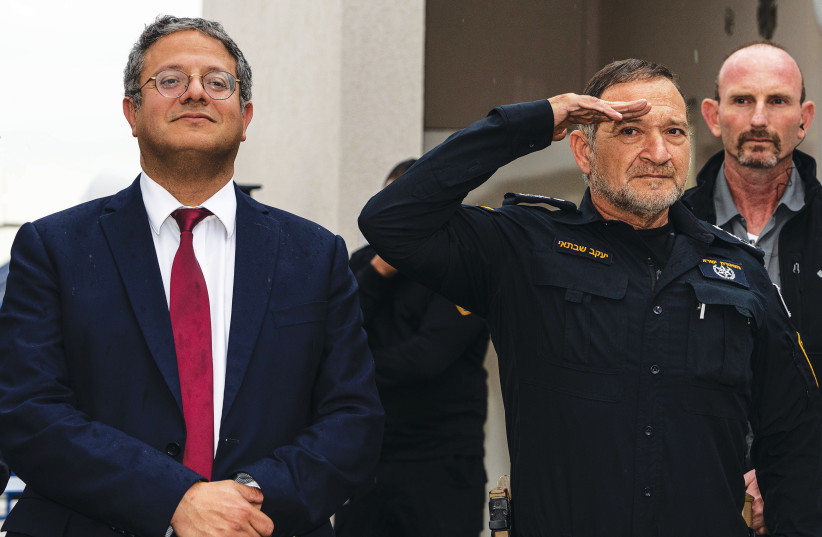Two hundred twenty-four Arabs were killed in acts of crime in 2023, the highest death toll due to crime in the Arab sector since the State of Israel was founded and over double the number of deaths reported last year, according to an annual report published by the Abraham Initiatives on Sunday.
In comparison, in 2022, 116 Arabs were killed in Israel, while in 2021, 126 were killed; in 2020, 96 were killed, and in 2019, 89 were killed.
The organization noted that while there was an increase in murders across the country, the main increase was seen in northern Israel, adding that this was mainly due to heightened activity by criminal organizations in that area. Intensified police operations, which began under the previous government, also led to power struggles between and within the criminal organizations, which also led to heightened violence.
In the two months since the October 7 massacre, crime dipped by about 51% compared to the two months before October 7, possibly due in part to an increased police presence in Arab communities.
Based on data from police, media reports, and information received from the field, the Abraham Initiatives estimated that about two-thirds of the murders were caused by fights between criminal organizations or criminals, and in struggles between families or tribes. Additionally, 7.7% of the cases were incidents of brawls or spontaneous violence, and 4.5% were cases of intra-family violence or violence based on gender or sexual identity. The cause of the remaining 11.8% of the cases is unknown.

Nearly half (48.7%) of the victims were between the ages of 18-30, 20.9% were between the ages of 31-40, 14.3% were between the ages of 41-50, 11% were above the age of 51, and 4.9% were 17-years-old or younger.
Only 10.5% of murder cases have been solved so far
Of the murders committed throughout the year, only 10.5% of the cases have been solved. The organization warned that this means that most of the murderers are still on the loose.
The Abraham Initiatives stressed that while under the Bennett-Lapid government, there was a "serious and thorough" effort to combat crime, under the current government, several officials have tried to create obstacles for crime-fighting plans.
National Security Minister Itamar Ben-Gvir and Development of the Negev and Galilee and National Resilience Minister Yitzhak Wasserlauf expressed support for cutting the budget for socio-economic development in the Arab sector, a budget aimed at addressing the root causes of crime and violence.
The Abraham Initiatives added as well that the current government changed the "Safe Route" operation launched under the Lapid-Bennet government to combat crime in ways that made it "irrelevant and without effect."
The organization stressed that for a fight against crime in the Arab sector to be successful, there needs to be a real desire to fight this crime, but "the conduct of the ministry and the minister of national security raises great doubt regarding the existence of such a desire."
"On the contrary: the minister leads a policy that marks all Arab citizens of the country as enemies, and his conduct over the years reflects a view that Arab lives are inconsequential and their civil rights are conditional at best," added the Abraham Initiatives.
The Abraham Initiatives made several recommendations for policies to successfully fight crime in the Arab sector, including making the fight against crime a government priority again, the complete implementation of government decisions made during the Lapid-Bennett government concerning the fight against crime, the removal of Ben-Gvir from the post of national security minister, returning the "Safe Route" operation, an increased police presence in Arab towns and cities, improved resources and manpower for the police force, activities aimed at increasing trust and cooperation between the Arab sector and the police, the prevention of the mass distribution of gun licenses and firearms, and increased protection for candidates for public office in the upcoming municipal elections.
